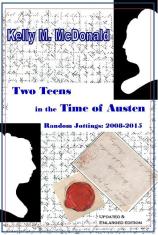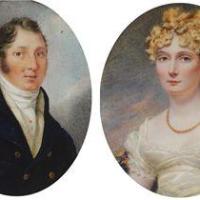Sir William Knighton – New Biography!
January 21, 2011 at 10:54 am (books, news, people, places) (authorsonline, biography, charlotte frost, diaries, letters, regency physician, sir william knighton, strange career of a regency physician)
Announcing…

from the publisher’s website:
“William Knighton is remembered as the indispensable confidant whom George IV trusted to act with efficiency and discretion in matters personal and constitutional, great and small. Between 1822 and 1830 Knighton was a national figure, the intermediary between George and most of the world, but his life at Court was a second career undertaken in early middle age. He was born a farmer’s son, came of age in the last quarter of the eighteenth century, and for most of his working life earned his living as a doctor. As a physician Knighton was tied to the eighteenth century, skilled at diagnosis and prognosis but with only limited remedies to hand. As a courtier in the 1820s he served a monarch whose subjects feared revolution but favoured religious tolerance and the reform of public life, and in both careers he moved among larger-than-life characters. During his working life he witnessed the indiscretions of an age in which courtesans and mistresses held power, while retirement gave him leisure to despair of an England that had enacted the Great Electoral Reform Bill. He has much to offer historians. A confirmed landlubber who fled Plymouth to become obstetrician to London society, he was also the Everyman of maritime England who accepted ships and the sea as part of everyday life. His mother was a triumphant example of the advantages of business sense over gentility for Georgian women, while his discriminate exercise of patronage shows its acceptable use in the absence of alternatives.
Yet a study of Knighton’s life is more than a reflection of late Georgian England. He was not defined by the age in which he lived. The victories at Trafalgar and Waterloo, the insanity of one king and the extravagance of another, hard harvests, religious dissent and electoral reform were merely context. Knighton’s life was shaped by family secrets, a good marriage, a child’s death and a capricious employer – common experiences in every society and every age. His life was also shaped by his abilities. A fine intellect and capacity for hard work ensured success at whatever he attempted, but he lacked the spark of genius that would take him to the top of any one career or make it inevitable that he would follow one calling rather than another. With ambition and ability but no vocation, Knighton’s life was a series of choices. Some he made wisely. Others he was honest enough to regret.”
You can find more about Charlotte Frost and her new biography Sir William Knighton: The Strange Career of a Regency Physician on authorsonline.co.uk

















facebook said,
February 16, 2011 at 6:03 pm
i love it